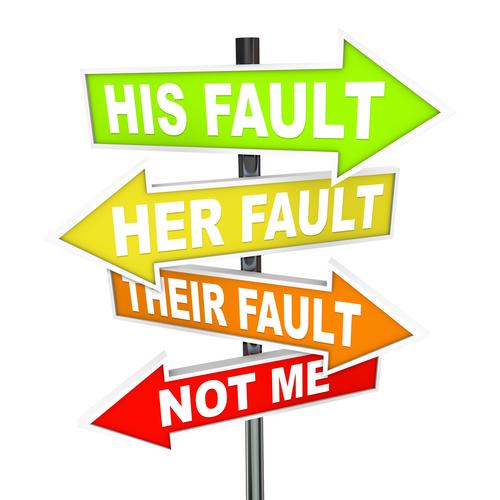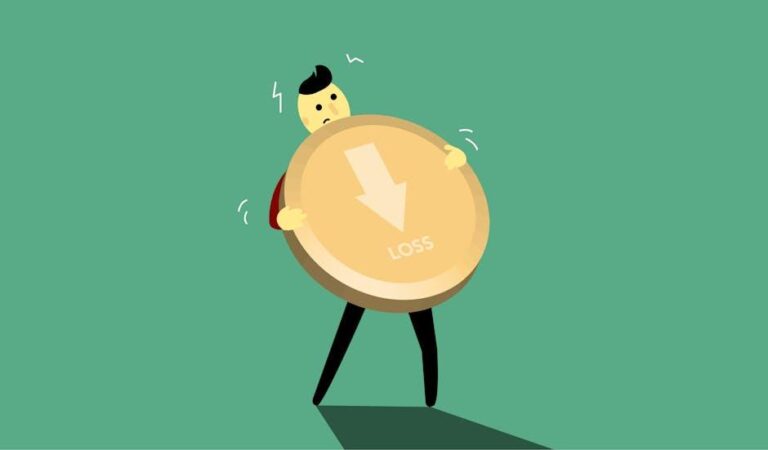So, you’ve managed to lose a bit of money? Maybe more than just a bit? Whether it’s an investment crash, a business setback, or perhaps an obsession with avocado toast (we’re not judging), financial loss can feel like a punch from a heavyweight boxer. But fear not! While your wallet might be on a temporary diet, your spirit doesn’t have to be. Welcome to our guide on “.” We’re here to help you navigate the turbulent seas of financial despair with a sturdy ship of practical advice, a compass of humor, and maybe a little sea shanty or two. Get ready to go from financially flustered to fiscally fabulous with some tips that will have you laughing (almost) all the way to the bank.
Navigating the Sea of Green: Understanding Your Financial Situation Without a Lifeboat
So, you’ve hit a financial iceberg and your wallet feels like it’s sinking faster than the Titanic. It’s a tough situation, but you’re not alone. First, let’s take a deep breath and evaluate the damage. Assessing your current financial health is like figuring out which parts of your boat are still afloat. You might want to make a list of all your debts, assets, and monthly expenditures. This can help you see where you stand and what holes need plugging. Here’s what to consider:
- Current debts: Credit card balances, loans, any IOUs to Bob next door.
- Assets: Savings accounts, investments, that vintage comic book collection.
- Monthly expenditures: Rent, utilities, grocery bills, your morning latte habit.
Next, it’s time to start patching things up. Crafting a budget is your compass to navigate out of this green sea. A good budget not only manages your expenses but might also free up some cash to tackle those pesky debts. And don’t worry, budgeting isn’t about living on bread and water (unless you’re into that kind of thing). Here’s a simple example of how you could allocate your income:
| Category | Percentage |
|---|---|
| Essentials (Rent, Utilities, Groceries) | 50% |
| Savings and Debt Repayment | 20% |
| Discretionary (Fun Stuff) | 30% |
Remember, it’s all about balance – think of this as the financial equivalent of not leaning too far over the side of the boat!

The Blame Game: How to Yell at Your Budget Without Scaring Your Kids
We’ve all been there: staring at the receipts piling up, wondering if there’s a hidden black hole eating at our bank account. Instead of going full-on Hulk mode and scaring the kiddos, channel that energy into something productive. Start with making a Financial Time-Out list. It’s like a penalty box for your budget, where every penny gets a serious talking-to. Here’s what goes on that list:
- *Subscriptions you never use*: Do you really need that subscription to “24/7 Doughnut Wallpapers?”
- *Impulse buys*: Those online shopping sprees at 2 a.m. might need a curfew.
- *Untracked expenses*: That daily mocha latte could probably fund a mini space program by now.
But hey, don’t turn this into a finance-discipline fest. Make it a fun challenge and set up a Family Finance Table:
| Expense | Who’s Responsible | How to Cut Down |
|---|---|---|
| Electricity Bill | Parent 1 | Energy-efficient bulbs! |
| Groceries | Parent 2 | Meal planning (no more food waste) |
| Fun Activities | The Kids | Backyard camping |
Suddenly, it’s not just an avalanche of numbers, but a team effort to bring stability back without the daily drama. Everyone’s got a role, and yes, there’s room for creativity with a splash of humor. Because laughing at mistakes is way better than crying over them, and trust us, the kids will thank you for keeping the mood light.

Budget Bootcamp: Training Your Wallet to Stop Getting Its Butt Kicked
So, you’ve taken a financial hit, huh? No worries, champ! It’s time to dust off your wallet and get back into the game. Step one: assess the damage. Grab a pen, a cozy cup of coffee, and list out all the details. Here’s what you need to jot down:
- Current Balance: How much is left in your account? (Don’t panic, it’ll get better!)
- Upcoming Expenses: Rent, groceries, bills – the essentials.
- Lost Sources of Income: Anything that’s not bringing in the green anymore.
<p>Now, let's step into the next part of your recovery journey: creating an action plan. Picture it like a budget bootcamp for your wallet. Here’s the drill:</p>
<ul>
<li>Cut Unnecessary Expenses: Say goodbye to those fancy lattes and hello to home-brewed coffee.</li>
<li>Seek Financial Advice: Talk to a financial advisor or get tips from a trusted mentor.</li>
<li>Set Achievable Goals: Break down your financial recovery into baby steps you can handle.</li>
</ul>
<p>And because a little visualization never hurts, check out this budget breakdown table to get a clearer picture of where your money should go:</p>
<table class="wp-block-table">
<thead>
<tr>
<th>Category</th>
<th>Monthly Allocation</th>
<th>Current Spending</th>
</tr>
</thead>
<tbody>
<tr>
<td style="color: red;"><strong>Rent/Mortgage</strong></td>
<td><strong>$1,200</strong></td>
<td><strong>$1,200</strong></td>
</tr>
<tr>
<td style="color: red;"><strong>Groceries</strong></td>
<td><strong>$300</strong></td>
<td><strong>$400</strong></td>
</tr>
<tr>
<td style="color: red;"><strong>Entertainment</strong></td>
<td><strong>$50</strong></td>
<td><strong>$150</strong></td>
</tr>
</tbody>
</table>

Investing in Aspirin: Financial Strategies That Won’t Give You a Headache
Financial loss, much like a stubborn headache, can be quite a nuisance. But fear not! It’s possible to bounce back with some strategic and cheeky moves up your sleeve. Here are a few tried-and-true methods to help you regain your financial mojo without reaching for the aspirin bottle:
- Analyze the Cause: Before you can move forward, you need to understand what went wrong. Was it a poor investment choice, unexpected expenses, or market volatility?
- Reassess Your Budget: Trim the fat where you can! That daily gourmet coffee might need to be swapped for a homebrew. Who knew finances could be as thrilling as diet plans?
- Diversify Your Investments: Don’t put all your eggs in one basket (or stocks in one sector). Mix things up to spread out your risk.
- Seek Professional Advice: Just like you’d see a doctor for persistent headaches, sometimes it’s best to consult a financial advisor for your monetary migraines.
- Stay Positive: A good attitude can do wonders. Financial setbacks are temporary, much like a headache (unless you’ve been looking at your screen too long).
| Strategy | Action |
|---|---|
| Analyze | Discover root causes |
| Reassess | Adjust your budget |
| Diversify | Spread out risk |
| Consult | Get professional help |
| Stay Positive | Maintain a good attitude |
Now that you’ve got the blueprint to financial recovery, take a deep breath and start implementing these strategies. Your pocketbook—and your head—will thank you.
Q&A
Q: Help! I just faced a significant financial loss. What’s the first thing I should do?
A: First of all, don’t panic—and definitely do not Google “what to do if I’m broke and crying.” Instead, take a deep breath, make yourself a cup of tea (or something stronger—no judgments here), and gather all necessary financial documents. You need a clear picture of your finances to start planning your comeback story worthy of a Netflix series.
Q: How do I assess the extent of my financial loss?
A: Time to channel your inner Sherlock Holmes. Start by listing all your assets and liabilities. If math isn’t your strong suit, don’t worry; there are apps and spreadsheets to come to your rescue. You might even rediscover forgotten assets, like that savings bond from Aunt Margaret.
Q: How important is budgeting after a financial loss?
A: Super important—like wearing pants to a job interview kind of important. A new budget will be your financial GPS, guiding you away from the dark alleys of unplanned expenses into the bright avenues of financial recovery. Include all essential expenditures and cut out the non-essentials like that subscription to “Exotic Pet Monthly.” Your iguana will understand.
Q: Should I get professional financial advice?
A: Absolutely! Think of a financial advisor as your money therapist. They’ll help you work through your money issues without judging your avocado toast addiction. A second opinion can help you make more informed decisions and potentially find strategies you hadn’t thought of, like refinancing your home to free up some of that sweet equity.
Q: How can I avoid spiraling into a negative mindset?
A: Remember that scene in every superhero movie where the hero faces a crushing defeat, but then they rise stronger? That’s you. Surround yourself with supportive friends and family who can offer encouragement, or at the very least, distract you with funny cat videos. And hey, if Batman can bounce back from financial loss (thanks, Bane), so can you.
Q: Any tips for boosting my income during recovery?
A: It’s side hustle time, baby! Explore freelance opportunities, sell those unused items cluttering up your closet, or maybe even rent out a room. Pick something you’re passionate about; it’ll make the extra hours feel less like work and more like a hobby that pays. Just remember, multi-level marketing schemes should probably be left in your spam folder.
Q: How do I prioritize my debts?
A: Think of debt as a list of friends you owe favors to—start with the crankiest one first. High-interest debts should be your top priority, as they cost you the most in the long run. Pay minimums on lower-interest debts until the financial dragon (a.k.a high-interest debt) is slayed.
Q: What if my loss is due to a bad investment? Any lessons to learn?
A: Ah, the infamous ‘bad investment blues.’ Treat it as a pricey but valuable lesson. Evaluate what went wrong: Did you put too many eggs in one basket? Did you follow advice from that overly enthusiastic cousin who also swore Bitcoin would hit a million? Diversification is key. Future you will thank present you for spreading investments across different assets.
Q: Will I ever recover from this?
A: Press pause on the dramatic internal monologue. Yes, you will recover! Most financial setbacks are temporary, especially if you take proactive steps to mitigate the damage. Like every plot twist in a rom-com, things seem bleak now, but there’s a happy ending waiting for you. Trust the process, keep your sense of humor, and stay focused on your goals. And maybe keep a stash of emergency chocolates handy.
In Retrospect
And there you have it – a comprehensive guide to bouncing back from financial missteps, complete with a sprinkle of humor to lighten the load. Remember, even the best financial planners have tripped over their calculators at some point. The key is not to set up camp in the Valley of Money Mishaps, but to dust off and start climbing toward Financial Stability Summit.
With a bit of savvy strategy, resilience, and perhaps the occasional ice cream therapy, you’ll be well on your way to recovery. So, tighten those budget belts, flex those financial muscles, and remember: every cloud may have a silver lining, but if your silver’s in the lining, double-check your saving strategies! Until next time, keep laughing, learning, and leveling up your financial game.


